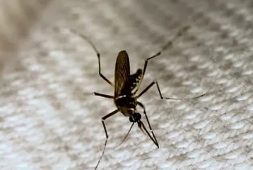
A recent study suggests that processed foods, which are often lacking in fiber, vitamins, and minerals, do not provide sufficient protection against the development of type 2 diabetes. In fact, the study indicates that poor dietary choices account for more than 70 percent of new cases of type 2 diabetes worldwide.
If you’re looking for a compelling reason to incorporate more whole grains into your diet while reducing your consumption of processed meat, this study provides fresh evidence that making selective food choices can help lower the risk of developing type 2 diabetes.
The study, published in Nature Medicine, analyzed nearly three decades of data from 184 countries to assess how 11 different dietary factors influenced the risk of type 2 diabetes. The researchers estimated that in 2018 alone, 14.1 million cases of type 2 diabetes worldwide were attributed to poor eating habits.
The analysis revealed that three factors had a significant impact on the risk of type 2 diabetes. Insufficient consumption of whole grains, excessive intake of refined rice and wheat, and overconsumption of processed meat were found to contribute disproportionately to the development of the disease. On the other hand, factors such as excessive fruit juice consumption or inadequate intake of non-starchy vegetables did not appear to have as substantial an effect on the risk of type 2 diabetes, according to the study’s findings.
“Our study suggests poor carbohydrate quality is a leading driver of diet-attributable type 2 diabetes globally,” shared senior author Dariush Mozaffarian, MD, DrPH, Jean Mayer Professor of Nutrition and dean for policy at the Friedman School of Nutrition Science and Policy at Tufts in Boston, in a statement he recently released. “These new findings reveal critical areas for national and global focus to improve nutrition and reduce devastating burdens of diabetes.”
Type 2 Diabetes Causes
Type 2 diabetes occurs when the body’s production or utilization of insulin, a hormone responsible for converting sugars from our diet into energy, is insufficient. As a result, sugar accumulates in the bloodstream instead. The Centers for Disease Control and Prevention (CDC) identifies several key risk factors for type 2 diabetes, including being overweight or obese, having a sedentary lifestyle, or being above the age of 45.
To prevent type 2 diabetes, the Harvard T.H. Chan School of Public Health recommends adopting certain practices. These include maintaining a healthy body weight, engaging in regular physical activity, and following a nutritious diet.
Type 2 Diabetes Rates Increasing All Over
A recent study conducted between 1990 and 2018 observed the prevalence of type 2 diabetes cases in 184 countries, revealing an upward trend in every single country analyzed.
The study highlighted specific regions, such as Central and Eastern Europe and Central Asia, where diets consisting of red and processed meat as well as potatoes were associated with a higher number of type 2 diabetes cases attributed to dietary factors. Similarly, Latin America and the Caribbean exhibited a higher proportion of type 2 diabetes cases linked to dietary factors due to the consumption of sugary drinks, processed meats, and a lack of whole grains. Conversely, regions like South Asia and sub-Saharan Africa, characterized by diets low in refined grains and processed meats, demonstrated fewer cases of type 2 diabetes associated with dietary factors.
Samantha Heller, RD, a senior clinical nutritionist at NYU Langone Health in New York City, who was not involved in the study, explains various reasons why a typical Western diet, abundant in red meat, processed foods, fried foods, sweets, sugary drinks, and saturated fats, may increase the risk of type 2 diabetes. Firstly, these foods lack fiber, vitamins, minerals, and other beneficial compounds, which can lead to inflammation, obesity, and difficulties in maintaining healthy blood sugar levels. Additionally, consuming excessive amounts of these unhealthy foods can displace healthier options, making it more challenging to sustain a healthy weight and manage blood sugar levels.
Fortunately, even small dietary modifications can help reduce the risk of type 2 diabetes, according to Heller. She suggests for the following changes to be made in order to lower the risk:
– Swap sugary cereals and breakfast foods with whole grain alternatives.
– Substitute refined white rice with brown rice.
– Choose plant-based proteins like beans, soy, and nuts instead of red and processed meats.
– Prioritize the consumption of whole fruits and vegetables.
Given enough time, these minor adjustments can lead to weight loss, increased energy levels, a reduced risk of type 2 diabetes, and other health improvements. Heller emphasizes the importance of consistency and maintaining these small changes over an extended period. Heller said. “The results do not happen overnight.”



